Can water-soluble, natural vitamin E affect passive transfer of antibodies in foals?
Yes. Water-soluble, natural vitamin E supplementation of mares during late gestation and early lactation can give foals a leg up in building a strong immune system. In a recent study,
pregnant mares were supplemented with 2,500 IU of water-soluble, natural vitamin E from the last month of pregnancy into the first few days of lactation. Bondo and Jensen (2010) reported mares supplemented with the water-soluble, natural vitamin E had higher levels of vitamin E, IgG and IgM in their colostrums and milk. Subsequently, higher blood levels of IgM and vitamin E were reported in the foals of the supplemented mares. Providing water-soluble, natural vitamin E to pregnant mares will reduce the incidence of failure of passive transfer (FPT) and will offer the foal an opportunity to receive more antibodies during the critical first moments of life, promoting a healthier immune system.
Does water-soluble, natural vitamin E cross the blood-brain barrier for horses?
Yes. When treating a horse with a neurological disorder, protecting its brain tissues from the irreparable effects of oxidative stress is important. New research has found that water-soluble,
natural vitamin E, a powerful antioxidant, is more readily available and effective in crossing the blood-brain barrier than synthetic vitamin E. Pusterla et al. (2010) supplemented healthy horses with 10,000 IU of water-soluble natural vitamin E and 10,000 IU of synthetic vitamin E. Blood levels of the water-soluble, natural vitamin E supplemented horses were twice as high as those given synthetic and were significantly higher than baseline values after only three days of supplementation. Vitamin E levels in the cerebrospinal fluid of the horses given the water-soluble, natural vitamin E were between 2 and 4 times higher than that of horses supplemented with synthetic vitamin E. Researchers found water-soluble, natural vitamin E to be superior in its absorption and availability in the blood and cerebrospinal fluid. Horses will benefit from the antioxidant protection provided by water-soluble, natural vitamin E when their neural tissues are compromised.
Can water-soluble vitamin E be useful in the management of horses with neurological and muscular diseases?
Yes. Over the past several years, researchers have been studying the effectiveness of megadoses of vitamin E in the prevention and treatment of neurological diseases, such as equine degenerative myeloencephalopathy (EDM), equine motor neuron disease (EMND), and equine protozoal myeloencephalitis (EPM).
EDM is a progressive disease of the brain stem and spinal cord. The disease occurs principally in young horses, and the primary sign is progressive ataxia or incoordination. Researchers have determined that EDM is not a congenital disease, though a horse may have a genetic predisposition to it.
Scientists linked vitamin E deficiency with EDM more than a decade ago. Of particular interest is research conducted at the University of Florida, where scientists worked with the EDM-affected get of two Standardbred stallions. The mares bred to these stallions and the resulting foals were given 1,500 IU of vitamin E per day. A year after supplementation began, only 10% of the foals were affected. Further offspring of the stallion were not diseased.
Cornell University first identified equine motor neuron disease (EMND). Although the cause of the syndrome is unknown, a commonality among affected horses is reduced exposure to green grass for more than a year and availability of poor-quality hay during that time. Dramatic clinical improvement was documented in horses that were allowed unrestricted access to lush pasture and vitamin E supplementation.
Vitamin E is often prescribed for horses with equine protozoal myeloencephalitis (EPM), to be used concomitantly with antiprotozoal medications. It’s not unusual, for instance, for horses to be supplemented with up to 8,000 IU of vitamin E per day during convalescence.
Which horses benefit from water-soluble vitamin E supplementation?
Because of vitamin E’s influence on nearly all body processes, horses of all ages can benefit from supplementation, particularly if they do not have regular access to fresh pasture or are challenged by illness or injury.
Horses without Access to Fresh Pasture
Vitamin E supplementation is essential for horses that are not allowed to graze continually. Fresh pasture is the greatest source of vitamin E in nature. The vitamin E content of dried forages, such as hay and hay cubes, is severely diminished, with such forages losing more than 75% of their vitamin content upon harvesting and storage.
In winter months or throughout periods of stall confinement, such as training, showing, or lay-up, supplementation may be necessary. Supplementation is also indicated year-round for racehorses and show horses confined to stalls or those horses that are restricted from grazing for metabolic reasons. Horses consuming inadequately fortified commercial feeds or those eating straight grains (oats, for example) may also suffer from vitamin E deprivation.
Performance Horses
As athletic effort increases, free radical production flourishes and normal stores of antioxidants have difficulty providing protection against the flood of free radicals generated. Supplementation with vitamin E is necessary to ward off the ill effects of mass-produced free radicals associated with intense exercise (Hoffman et al., 2001; McMeniman and Hintz, 1992; and Williams et al., 2003). Supplementation with natural vitamin E reduces muscle stiffness and soreness, speeds up recovery time after intense exercise, and increases exercise tolerance.
Breeding Horses
Mares supplemented with vitamin E have shown increased passive transfer of antibodies to foals, which ensures the strength of the neonatal system (Hoffman et al., 1999). Orphan foals benefit from vitamin E. When added to milk replacers, vitamin E acts as an effective immune booster following colostrum intake.
Vitamin E has been linked with increased libido and semen quality in stallions. One of the most important functions of vitamin E in stallions is cell membrane protection, which is achieved by scavenging free radicals. Chilling, freezing, and shipping semen increase free radical production and the damage they cause. Supplementing stallions with additional natural vitamin E increases the seman’s tolerance to cooling and shipping.
Horses with Neurological Diseases
Vitamin E supplementation is critical for horses battling neurological diseases, such as equine degenerative myeloencephalopathy (EDM), equine motor neuron disease (EMND), and equine protozoal myeloencephalitis (EPM). “Mayhew et al., 1987”found that supplementing mares with 1,500 IU of vitamin E per day decreased the incidence of EDM from 40% to 10% in foals born to these mares. In another study conducted by Blythe and Craig (1993), young foals showing signs of incoordination and ataxia appeared normal by two years of age when supplemented with 6,000 IU of vitamin E.
R E F E R E N C E S
Blythe, L.L., and A.M. Craig. 1993. Equine degenerative myeloencephalopathy. Part 1. Clinical signs and pathogenesis. Equine Compendium 14:1215-1221.
Hoffman, R.M., K.L. Morgan, M.P. Lynch, S.A. Zinn, C. Faustman, and P.A. Harris. 1999. Dietary vitamin E supplementation in the periparturient period influences immunoglobulins in equine colostrum and passive transfer in foals. In: Proc. Equine Nutr. Physiol. Symp. p. 96.
Hoffman, R.M., K.L. Morgan, A. Phillips, J.E. Dinger, S.A. Zinn, and C. Faustman. 2001. Dietary vitamin E and ascorbic acid influence nutritional status of exercising polo ponies. In: Proc. Equine Nutr. Physiol. Symp. p. 129-130.
Mayhew, I.G., H.D. Brown, A.L. Trapp, F.J. Derksen, and S.F. Clement. 1987. Equine degenerative myeloencephalopathy: A vitamin E deficiency that may be familial. J. Vet. Intern. Med. 1:45-50.
McMeniman, N.P., and H.F. Hintz. 1992. Effect of vitamin E status on lipid peroxidation in exercised horses. Equine Vet. J. 24:482-484.
Pagan, J.D, E. Kane, and D. Nash. 2005. Form and source of tocopherol affects vitamin E status in Thoroughbred horses. Pferdheilkunde 21:101-102.
Williams, C.A., D.S. Kronfeld, T.M. Hess, J.E. Waldron, K.E. Saker, R.M. Hoffman, and P.A. Harris. 2003. Vitamin E intake and oxidative stress in endurance horses. In: Proc. Equine Nutr. Physiol. Symp. p. 134-135.
Vitamin E is a fat-soluble vitamin and is stored in the tissues. Are there any toxicity issues?
Vitamin E toxicity has not been noted in horses. Veterinarians have administered high levels of vitamin E to compromised foals or horses challenged by neurological disease with no adverse effects. Horses receiving high levels of vitamin E should be managed by a licensed equine practitioner.
How does vitamin E affect a horse’s system?
Vitamin E (alpha-tocopherol) is a critically important nutrient for all horses, and supplementation is especially important for horses with limited or no access to lush pastures. This vitamin is not synthesized by the horse; therefore, it is an essential dietary nutrient. It is the primary lipid (fat)-soluble antioxidant that maintains cell membrane integrity and enhances both humoral- and cell-mediated immunity. Other metabolic roles of vitamin E have been reviewed by Brigelius-Flohé and Traber (1999).
Changes in management practices and ingredients used to formulate equine diets have dramatically increased the need for supplementing diets with this critically important vitamin. Gestating and lactating mares, young growing horses, and performance horses have the greatest need for vitamin E supplementation, especially those that do not have access to lush, green pasture.
Free Radicals May Harm Cells
Free radicals or reactive oxygen species (ROS) are unstable atoms with unpaired numbers of electrons that are formed when oxygen interacts with other molecules in all cells. Once formed, these reactive radicals can initiate chain reactions, resulting in a cascading negative effect on many other molecules within cells and cell walls, which in turn causes oxidative stress within the animal. Free radicals are commonly produced as part of normal cell metabolism, but also can become excessive following injury or disease. Left uncontrolled, free radicals can cause considerable irreparable damage to cells and cell membranes. They can alter the structure of cell membranes, and create havoc to polyunsaturated fatty acids (PUFA), proteins, and DNA within cells. The more active the cell, the greater the potential risk of cellular damage. Excessive free radical production or oxidative stress results when the formation of free radicals overwhelms the body’s ability to break the chain reactions that take place and an imbalance between production and removal of free radicals occurs. Uncontrolled oxidative stress can overpower the horse’s ability to fight back and may result in tissue damage, thus possibly impairing life.
In several species, including humans, this damage has recently been linked to degenerative diseases such as rheumatoid arthritis, cancer, cardiovascular disease, inflammatory bowel disease, renal disease, Parkinson’s disease, and cataracts. It may have a deleterious effect on the immune system (NRC Dietary Reference Intakes for Vitamin C, Vitamin E, Selenium and Carotenoids, 2000).
Antioxidants Help Prevent Cell Damage Caused by Oxidative Stress
Antioxidants are the horse’s major defense system against the scourge of free radicals and oxidative stress. Enzymatic antioxidants are synthesized in the body to neutralize free radical production. Key enzymatic antioxidants include superoxide dismutase, glutathione peroxidase, and catalase. Other major sources of antioxidants available to the horse are nonenzymatic or nutritional antioxidants. Nonenzymatic antioxidants, like vitamin E, scavenge and convert free radicals to relatively stable compounds and stop the chain reaction of free radical damage. Therefore, antioxidants are critically important to protect horses from tissue damage and disease, and may enhance immunity during these processes. The critical phases of reproduction in mares and stallions, growth of foals, and exercise of equine athletes are all especially important. Thus, for the horse, vitamin E appears to be the most important dietary fat-soluble nonenzymatic antioxidant to assist in combating free radical production and propagation.
Vitamin E is unique among vitamins in that it is not required for a specific metabolic function. As alpha-tocopherol, vitamin E’s main function appears to be the body’s primary fat-soluble antioxidant. Thus, vitamin E is notably essential for the proper function of the reproductive, muscular, nervous, circulatory, and immune systems.
What is the difference between Elevate W.S. and Elevate Maintenance powder or Elevate Concentrate powder?
Elevate® natural vitamin E (d-alpha-tocopherol) is provided to horses in two physical forms, powder or liquid. Both forms can be absorbed by the horse. Elevate® Maintenance powder and Elevate® Concentrate powder are classified as an acetate (powdered) form of natural vitamin E. This describes its molecular structure. Acetates are a larger, more stable compound; therefore, it takes the horse a few more steps to digest and absorb it. It takes about three weeks for vitamin E in powdered form to reach optimal levels in the horse’s body. The benefit of the powder is that it less likely to break down in the environment, so you can mix it in the feed ahead of time without worrying about it losing its potency. It is not affected by extreme temperatures, so it retains its biopotency when stored in various environmental conditions. It is both convenient and effective. Elevate Maintenance powder supplies 1000 IU of natural vitamin E per scoop and Elevate Concentrate supplies 5000 IU of natural vitamin E per scoop. The powder form is recommended when it is acceptable to raise blood levels slowly. Elevate Powder is the product of choice to maintain optimal levels of natural vitamin E over time.
Elevate W.S. is a water-soluble natural vitamin E. It goes through a patented process that changes its molecular structure so that is it easier for the horse to digest, absorb and store. Because of this change, Elevate W.S. is less stable in the environment, which is why you have to feed it immediately after removing it from the bottle. It begins to slowly break down as soon as it is exposed to light and air. It is will lose its biopotency when exposed to extreme temperatures. The benefit to this form of natural vitamin E is that it begins to increase blood levels within 24 hours and peak levels are reached in three days. Elevate W.S. also passes through the blood-brain barrier and is absorbed into the cerebral spinal fluid. Because of these benefits, Elevate W.S. is recommended for use when it is necessary to raise blood levels quickly and when neurological diseases are being treated.
The take-home message is this: Both liquid and powdered forms of Elevate natural vitamin E (d-alpha-tocopherol) are effectively absorbed and retained by horses. Elevate W.S. is fast-acting when acute situations demand quick absorption, and it is the product of choice when treating neurological issues. Elevate Maintenance and Elevate Concentrate are convenient and effective at slowly raising and then maintaining vitamin E levels necessary to support wellness and optimal performance.

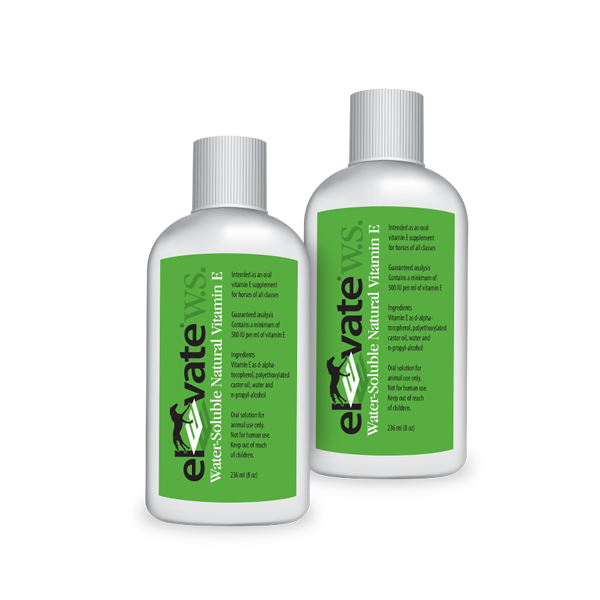
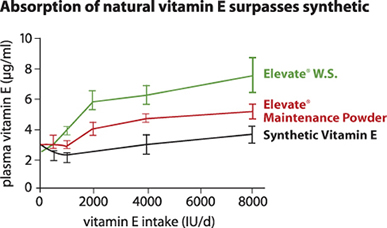
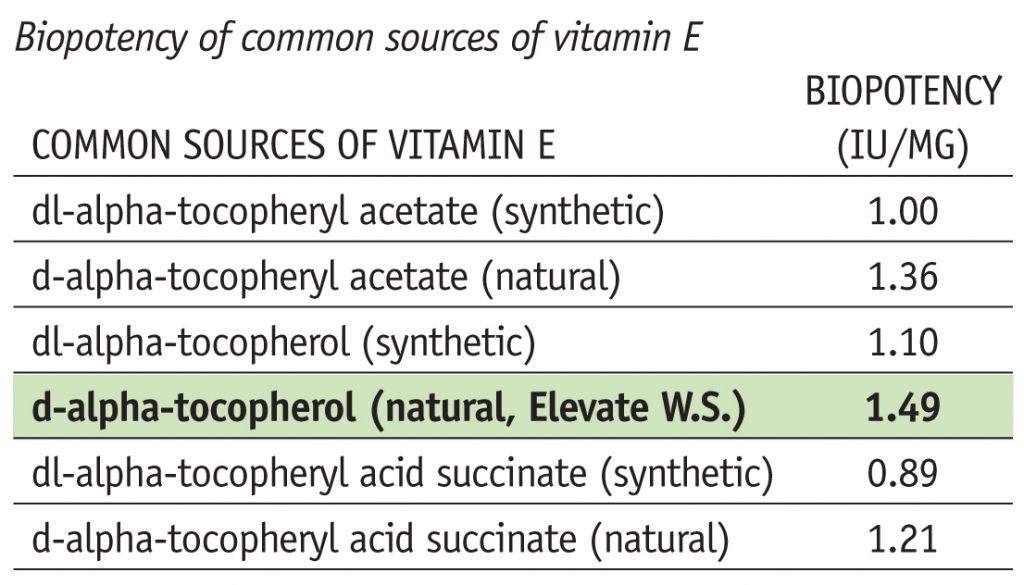

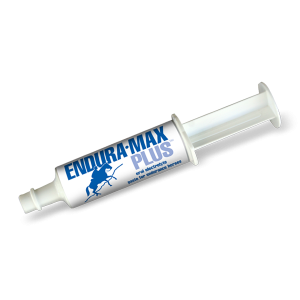
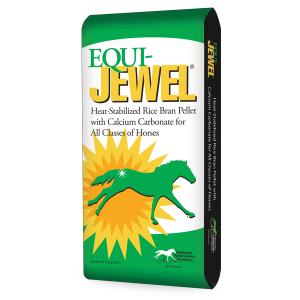
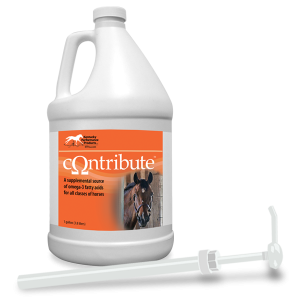
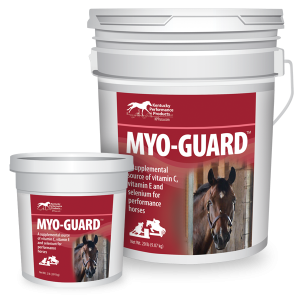
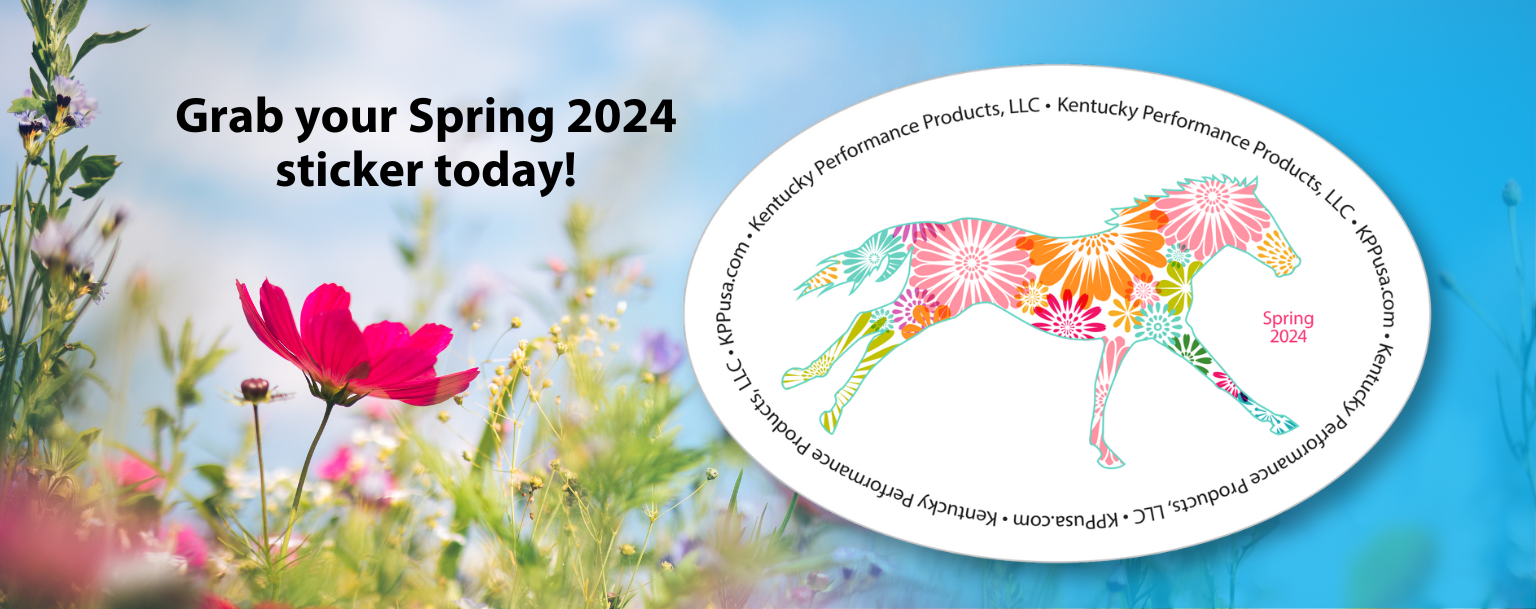
Janet Grogan –
My horse was tripping and I was not feeling safe when riding him. I discussed this with my vet and he suggested that I start using “Kentucky Performance Elevate”. He said that a trippy horse usually indicates that the horse needs Vitamin E. Vitamin E helps the muscles of the horse. I put my horse on Elevate in June, 2022. His tripping issues have improved by 99%.
Lucy Retz –
“KPP was highly recommended to me by my veterinarian, Dr. Meghan Waller. Meghan only recommends products she personally believes in, and takes a scientific based approach when choosing and recommending products. She puts a lot of time and effort into researching them so we only get the best. Her recommendations time and time again prove to work exactly as she says. I am so lucky to have her as a veterinarian!
My 14 year old miniature mare, Ladybug, began becoming increasingly more lame in the hind end in May. It was absolutely heartbreaking to watch her hobble around. My vet performed a lameness exam and she was pretty sure Ladybug had arthritis, but we couldn’t do imaging on the farm to confirm this. I considered euthanizing my mare because she was so painful and I felt helpless. My vet referred me to the Ontario Equine Hospital. There, Ladybug met the fabulous Dr. Orlaith Cleary who did a variety of different types of imaging on her. To our surprise, there was no arthritis, and everything appeared to be clean and healthy. I remember being so confused and almost a little upset that we couldn’t find anything to cause her severe stiffness and lameness. That’s when Dr. Cleary said, on a hunch, “Lets do a full blood panel, I wonder if she’s selenium and vitamin e deficient”. so we did, and 2 agonizing weeks later we got the results back confirming Nutrition Myopathy Disease.
So, now what? She’s got this deficiency but what do we do? In comes KPP supplements. Within 4 days my mare already was more comfortable. It was absolutely incredible to see a positive change so quickly. Ladybug is a very picky eater as well (I mean like, if I add too much water to her grain even, she won’t eat it) but the supplements are so palatable, she’s never batted an eye. We are now approximately 6 weeks in and the change is incredible and she gets better every single day. My mare who before didn’t want to move, was so stiff and miserable.. is now back to her spunky little self. We still have a long way to go, but we can’t thank KPP supplements and our awesome veterinarians enough for giving me my girl back.”
Richard Updaw –
In 2015, Richard Updaw of High Bottom Farm brought home Molly and her foal Holly. He shared this story with us:
Molly, the mother, had been kept in a stall for several years with no access to fresh pasture. As Holly was maturing, she did not flesh out over the back, ribs, and rump as she should have. Blood tests revealed a lack of vitamin E, and my veterinarian recommended putting her on Kentucky Performance Products’ Elevate supplement. I administered Elevate W.S. orally, as directed and after switching to Elevate Concentrate, I use that as a top dressing for both animals, who get Nutrena Empower Topline Balance as a daily ration.
I’m very happy with the results from the Elevate products. Holly has filled out very nicely, and mother Molly has maintained her good rigging.